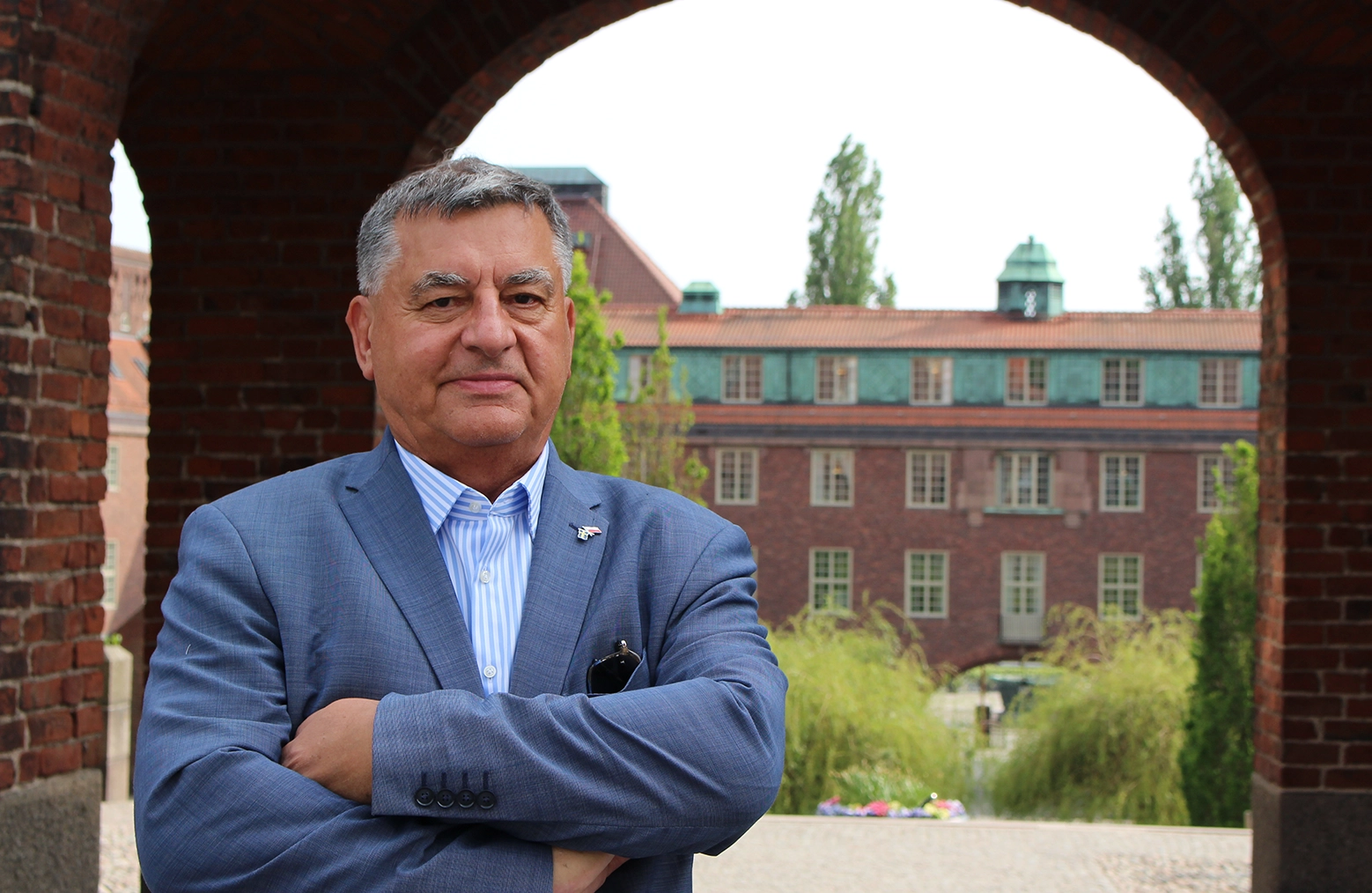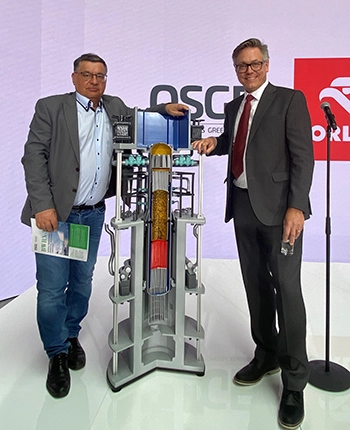Waclaw Gudowski receives the Borelius Medal: "Research is magical"

Waclaw Gudowski, the driving force behind KTH’s highly regarded Master’s Programme in Nuclear Engineering, has been awarded the Borelius Medal 2025.
The award recognises his outstanding contributions to nuclear research and education, as well as his passion for inspiring new generations of students and researchers.
What does receiving the Borelius Medal mean to you personally and professionally?
“Receiving the Borelius Medal means a great deal to me personally, especially when I saw the warm congratulations from former students and colleagues on Facebook. You can read some of them here. It truly made me happy that so many people shared in my joy.”
“Professionally, the full impact remains to be seen. Although I’m formally retired, I’m still involved in Poland’s nuclear programme, helping to build bridges between Poland and Sweden. We’re now planning to build a nuclear power plant in collaboration with Swedish and Polish companies. The Borelius Medal will certainly help strengthen confidence in that work.”
The motivation for the award particularly highlights your initiative to create the Master’s Programme in Nuclear Energy Engineering at KTH. What was your original vision, and how has the programme evolved?
“I came to Sweden in 1983, during a difficult period for nuclear power. It was just four years after the Three Mile Island accident and three years after the Swedish referendum that rejected further nuclear development. At the time, nuclear energy was seen as outdated, though ironically, it is still the youngest and most promising energy technology today. Young people had no interest in studying it, and the situation worsened after the Chernobyl disaster in 1986.”
“I believed that education was the best way to counter prejudice and unfounded fears. Ensuring the future of environmentally and climate-friendly energy technologies required both research and education, and that meant we needed external funding. SKB (Svensk Kärnbränslehantering AB) supported us, and we established the Swedish Centre for Nuclear Technology (SKC), which became the foundation for research and education at KTH.”
What was the next step?
“When KTH introduced the three-level Bologna education system, we saw an opportunity to launch a master’s programme. Torbjörn Bäck and I presented our proposal to President Anders Flodström and Dean of Faculty Folke Snickars. We got the green light, and with support from Ramon Wyss and Vasily Arzhanov, the programme became a reality.”
“We fought hard to attract students and built a strong international brand. Even though some wanted to shut the programme down after the Fukushima accident, it went on to be ranked among KTH’s top five programmes in an international evaluation in 2012–2013.”
Is there a particular moment or milestone in your career that stands out?

“There are several. I came to KTH as a postdoc in 1983 for six months but ended up staying for over 35 years. I’ve enjoyed every minute of it.
-
The first milestone was working with my mentor and research leader, Professor Karl Erik Larsson, from 1983 to 1990. It was one of the most enjoyable and rewarding periods of my career. My collaboration with Curt Mileikovsky was also important.
-
Other key moments include the creation of the Swedish Centre for Nuclear Technology, our partnership with SKB, the EU projects IABAT, RED IMPACT and Eurotrans, and the collaboration with the International Science and Technology Center. That partnership enabled KTH to master technologies that laid the groundwork for companies like Blykalla and Sealer.
-
Our summer courses in Oskarshamn over several years have also been highlights.
-
Finally, I’m proud of our students, many of whom have gone on to impressive careers. Carl Berglöf is the national nuclear coordinator, Daniel Westlén is a state secretary, Simon Wakter is an adviser to Minister Ebba Busch, and Christer Dahlgren is lead designer of the BWRX-300 reactor.”
What advice would you give young researchers and teachers who want to follow in your footsteps?
“Remember that ‘impossible is nothing’ and that success comes to those who persist. Research is magical, and so is inspiring young people and passing on the ‘research bug’.”
How will you celebrate?
“Champagne!”
